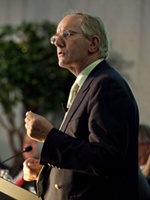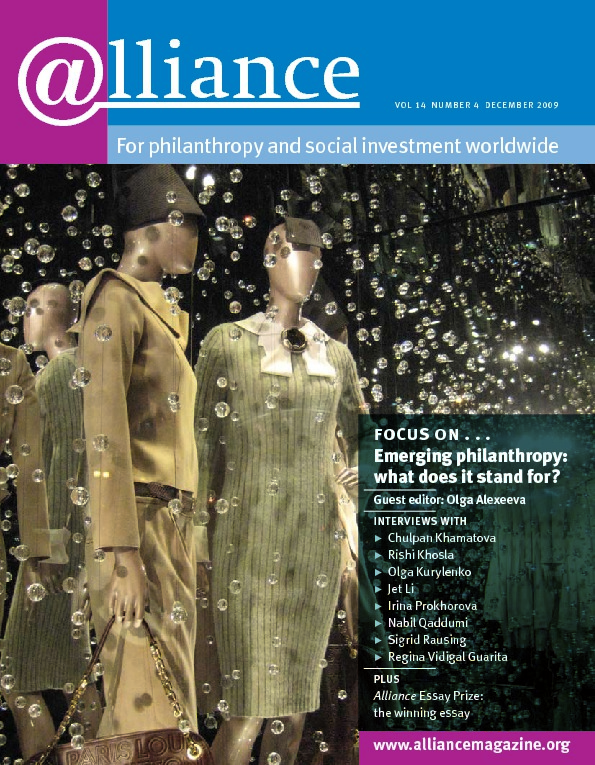‘Strategic Philanthropy: Doing Good Done Better’ was the title of a conference held at Erasmus University in Rotterdam on 23 September to mark the opening of the new Erasmus Centre for Strategic Philanthropy. In a sense the conference also marked the first public act of a new and greatly to be welcomed philanthropy infrastructure funder, the Adessium Foundation.
The starting point for the new centre is that new donors don’t know where to begin if they want to make a difference. When the Adessium Foundation was set up a few years ago, the founders themselves became aware at first hand of the lack of strategic advice on how to go about forming a fund. Adessium and Erasmus University subsequently found common ground in wanting to make a positive contribution to a growing field – and the idea for a new centre was born.
According to centre director Charles Erkelens, speaking at the opening, the new centre will focus on four activities: research, education, advice (though knowledge and expertise need to be built up first), and providing a platform to stimulate sharing of information and experience in the field. While admitting that strategic philanthropy is not yet a clearly defined discipline, he offered his own definition: the critical assessment of all aspects of an organization in order to fulfil the goals of the organization and achieve maximum impact.
 The challenge, he said, is the gap between academic theory and what people do in practice in everyday life. John Healy, former president of Atlantic Philanthropies (pictured), elaborated on the central challenge of relevance, giving his remarks the provocative title ‘Non-profit philanthropy centres – so what?’ The key tension, in Healy’s view, is balancing the interests of the non-profit sector with the interests of scholars. While it is important for the sector to have sound intellectual underpinnings in order to maintain legitimacy and the legal position of the field, the academic emphasis on publishing often skews academics to working on areas that are not relevant to managers.
The challenge, he said, is the gap between academic theory and what people do in practice in everyday life. John Healy, former president of Atlantic Philanthropies (pictured), elaborated on the central challenge of relevance, giving his remarks the provocative title ‘Non-profit philanthropy centres – so what?’ The key tension, in Healy’s view, is balancing the interests of the non-profit sector with the interests of scholars. While it is important for the sector to have sound intellectual underpinnings in order to maintain legitimacy and the legal position of the field, the academic emphasis on publishing often skews academics to working on areas that are not relevant to managers.
He gave the example of improving measurement and transparency in order to improve impact. CEOs will welcome a focus on this area, but they will want evaluation tools that are simple and comprehensible; a dense academic overlay can be an obstruction. The tension between the academy and the world of practice can be managed successfully, Healy insisted, but it is a challenge – for the new Erasmus Centre as for all non-profit philanthropy centres.
For more information
Contact Charles Erkelens at erkelens@ecsp.nl or visit http://www.ecsp.nl



Comments (0)